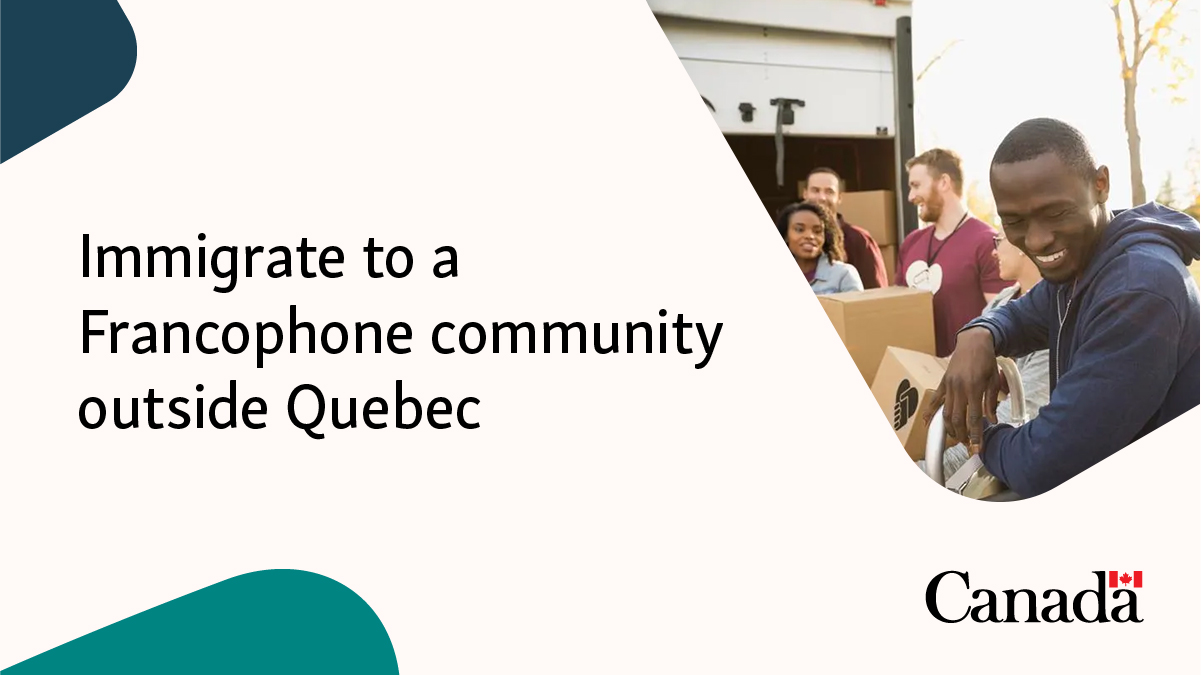Immigration, Refugees and Citizenship Canada (IRCC) has announced a significant expansion of its Francophone Minority Communities Student Pilot (FMCSP), increasing the program’s capacity by nearly 700 additional spots. The new cap now stands at 2,970 applications, representing a 29% increase from the previous year’s limit of 2,300.
Applications under this expanded pathway will be accepted from August 26, 2025, through August 25, 2026.
Lower Language Requirements Make Program More Accessible
One of the program’s most appealing features is its reduced French proficiency requirement. Applicants need only demonstrate a level 5 French proficiency according to Canada’s Niveaux de compétence linguistique canadiens (NCLC) standards. This is notably lower than the level 7 NCLC required for Express Entry’s category-based francophone draws.
Key Program Benefits
The FMCSP offers several advantages for eligible francophone students:
Streamlined Study Permits: Qualified applicants receive expedited processing for study permits when accepted into designated programs and schools in selected Canadian communities.
Direct Pathway to Permanent Residence: After completing their studies, participants can apply for permanent residence through a dedicated channel.
Family Inclusion: Immediate family members—including spouses, common-law partners, dependent children, and dependent children of dependent children—can also obtain PR through this pathway.
Work Opportunities While Waiting: Both principal applicants and their immediate family members may qualify for open work permits after submitting their PR application, allowing them to work for most Canadian employers while awaiting a decision.
Eligibility Requirements
To qualify as a principal applicant under the FMCSP, international students must:
- Submit a study permit application before arriving in Canada
- Be a citizen of an eligible member country of l’Organisation internationale de la Francophonie (OIF) from designated regions, including 28 African nations, Egypt, Lebanon, Haiti, Dominica, and Saint Lucia
- Obtain an acceptance letter from a Designated Learning Institution (DLI) with an IRCC Memorandum of Understanding that confirms:
- Enrollment in a postsecondary program with over 50% of courses taught in French
- Full-time study for at least two years
- A program leading to a diploma or degree
- Provide French language test results showing minimum NCLC level 5 scores in all four competencies (speaking, listening, reading, and writing)
- Demonstrate sufficient financial resources equal to at least 75% of the Low-Income Cut-Off (LICO) for the municipality where the DLI’s main campus is located, in addition to first-year tuition and travel expenses
- Meet Canadian admissibility requirements
Family members can accompany the principal applicant by submitting appropriate work permit, study permit, or temporary resident visa applications.
Application Process
The application process varies slightly depending on the applicant’s country of origin. Prospective students should:
- Visit IRCC’s official FMCSP application webpage and select their country
- Indicate whether family members are applying simultaneously
- Download the customized checklist of required documents
- Gather all necessary documentation, including application forms, academic records, and proof of funds
- Complete forms carefully, selecting specific responses to indicate FMCSP participation
- Upload language test results to the “Client information” field under “Optional document” section in their IRCC secure account
Strategic Context: Strengthening French Outside Quebec
This expansion reflects the federal government’s commitment to bolstering francophone communities outside Quebec. IRCC has been specifically tasked with increasing the demographic representation of French speakers in these regions, which has experienced steady decline in recent years.
The department has implemented several complementary initiatives to attract francophone immigrants, including Express Entry’s French language proficiency category and the Welcoming Francophone Communities Initiative. According to IRCC’s Policy on Francophone Immigration, the department aims to allocate 9.5% of its 2026 immigrant landings to francophone immigration outside Quebec.
As Canada’s primary agency influencing the linguistic makeup of the country through immigration policy, IRCC’s expanded FMCSP represents a concrete step toward reversing the declining French-speaking population outside Quebec while providing valuable opportunities for qualified international students.

